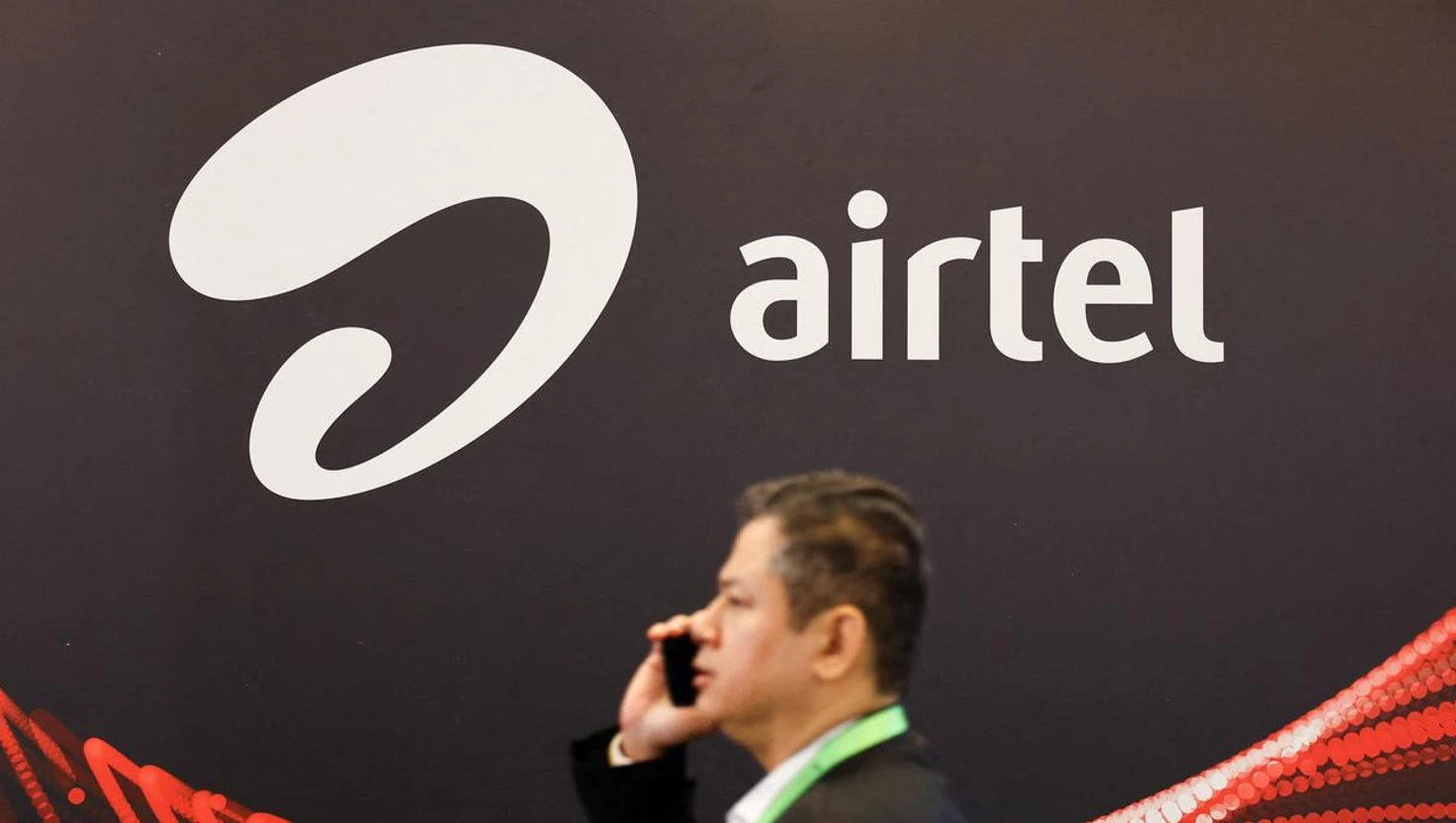Bharti Airtel Q2 Results: Revenue Rises 25%, ARPU Gap Widens Over Reliance Jio

Bharti Airtel has posted strong second-quarter results, with revenue climbing 25.7% year-on-year to ₹52,145 crore and net profit nearly doubling to ₹6,792 crore. The company strengthened its lead over rival Reliance Jio in average revenue per user (ARPU), driven by growth among premium subscribers and improved service quality.
The Indian telecom operator, led by Sunil Bharti Mittal, recorded an ARPU of ₹256 for the September quarter—up 2.4% from the previous three months—compared to Jio’s ₹211.4, which rose by 1.2%. ARPU, a key metric of profitability in the telecom sector, reflects the average monthly income generated per customer.
Gopal Vittal, Bharti Airtel’s vice-chairman and managing director, said in a statement that the company’s “India mobile business delivered 2.6% revenue growth, adding 5.1 million smartphone customers and maintaining an industry-leading ARPU of ₹256.” He added that the postpaid segment recorded one of the highest quarterly additions of 1 million new users, bringing Airtel’s total postpaid base to 27.5 million.
Premium Focus and Tariff Impact
Analysts attribute Airtel’s performance to its emphasis on high-value customers and the effects of tariff revisions introduced in July. The firm’s “continued premiumisation” strategy—targeting users willing to pay for quality and data speed—has allowed it to consolidate earnings as Jio focuses on mass-market expansion.
“Jio is chasing the volume game, whereas Airtel has been focused on the premium end from the beginning,” said Faisal Kawoosa, chief analyst at Techarc. He noted that the removal of low-cost entry plans may have also lifted Airtel’s ARPU.
ICICI Securities, in a research note, said a change in tariff structure was critical for sustainable ARPU growth. “Tweaking the 5G tariff structure and promoting premium data plans should help premiumisation continue for longer,” the brokerage said.
Segment Performance
Airtel’s India mobile services accounted for over half of total revenue, contributing ₹28,116.7 crore, up 13.2% year-on-year. The home services segment—which includes broadband and IPTV—rose 30% to ₹1,865 crore, reflecting strong demand for connected homes. Airtel’s digital TV business saw a marginal dip to ₹753 crore.
The enterprise division, branded as Airtel Business, generated ₹5,276 crore during the quarter. This was 4.3% higher sequentially but 6.7% lower than a year earlier. The unit, which offers data centres, cloud, IoT, and cybersecurity services, returned to growth after three consecutive quarters of decline. Vittal highlighted “multiple deal wins across connectivity, IoT, and security business.”
ICICI Securities said enterprise demand for digital transformation continues to expand, with growing opportunities in cloud and managed services for small and medium enterprises.
Africa Operations
Airtel Africa contributed about 26% of total consolidated revenue, posting a 24.2% year-on-year rise in constant currency terms to $1.6 billion. The growth came from higher data consumption and increased adoption of Airtel Money, its mobile payments platform.
Meanwhile, rival Jio Platforms has announced its own expansion into Africa through network infrastructure projects, including partnerships with Nokia, Ericsson, Tech Mahindra, and Ascend Digital to develop 4G and 5G broadband in Ghana.
Market Context
Airtel’s results come as the Indian Supreme Court allows relief measures for Vodafone Idea regarding adjusted gross revenue (AGR) dues. Investors are closely watching whether Airtel will also seek similar relief or pursue conversion of part of its AGR liabilities into equity.
The company’s strong earnings also come ahead of discussions with analysts on tariff strategy. While Reliance Jio has ruled out immediate price hikes, market observers expect Airtel to advocate for upward revisions to support network investments and offset costs related to 5G rollout.
Digital Expansion and AI Partnerships
In the digital space, Airtel has introduced enterprise cloud services branded as Airtel Cloud, aiming to capture clients seeking secure, locally hosted data solutions. Three months after Airtel’s tie-up with AI platform Perplexity, Jio announced an agreement with Google to offer its subscribers complimentary access to the Gemini AI Pro suite worth ₹35,000 for 18 months.
Analyst Faisal Kawoosa said telecom operators could benefit from partnerships around artificial intelligence and data infrastructure but warned that “for the long term, they will need to create their own value propositions beyond distributing AI tools.”
Outlook
Bharti Airtel added 1.4 million mobile subscribers in the September quarter, raising its total base in India to 364 million. Reliance Jio remains ahead with about 506 million users.
The company’s stable growth across mobility, home broadband, enterprise services, and Africa operations suggests continued resilience amid a competitive telecom market. However, industry observers note that future earnings momentum will depend on tariff adjustments, 5G adoption rates, and the pace of digital services expansion.

ED Seizes ₹7,500 Crore in Assets Linked to Anil Ambani Group Amid Money-Laundering Probe

Pine Labs Awards ₹243 Crore in ESOPs to CEO Amrish Rau Ahead of IPO

Apple Plans Major Overhaul of Siri with Google Gemini AI by 2026

India’s ISRO Launches Heaviest Communication Satellite GSAT-7R





